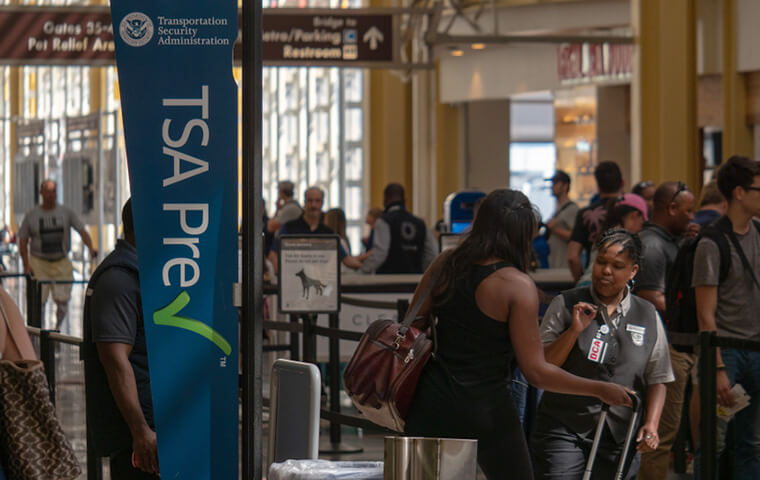 Regularly scheduled TSA employees not working on a given day has risen to 10 percent, and are among those hit particularly hard in the wallet in the current partial shutdown. Image: David Tran Photo/Shutterstock.com
By: FEDweek Staff
Regularly scheduled TSA employees not working on a given day has risen to 10 percent, and are among those hit particularly hard in the wallet in the current partial shutdown. Image: David Tran Photo/Shutterstock.com
By: FEDweek StaffGrowing numbers of employees who are “excepted” from furlough and required to continue working without pay due to the partial shutdown are missing that work on grounds that they can’t afford the commuting and related costs.
The effect has been the most prominent at the TSA, where such call-ins–inaccurately reported by some media as “sick-outs”–have been an issue among the screener workforce almost from the outset. Recently the daily percentage of regularly scheduled employees not working on a given day there has risen as high as 10 percent, three times the normal rate.
In addition, starting this week when the IRS called back some 35,000 employees from furlough to work on the upcoming tax filing season, large numbers–there has been no exact accounting–similarly responded that they could not afford to report for work.
So far, agencies seem to be taking an understanding attitude toward employees making that claim; there have been no reported incidents of employees being subjected to disciplinary action, or even threatened. However the latest fact sheet from OPM on shutdown considerations stresses that potential. “If an employee is excepted from furlough, and therefore required to work during the shutdown yet has failed to do so, he or she would be considered AWOL during the period of any such unauthorized absence,” it says.
“The employee’s unauthorized absence should be coded in payroll as AWOL. Agencies may elect to provide the employee a written notification about his or her AWOL status at the time of the AWOL but this can vary by agency. The agency may use its discretion, based on the facts and circumstances of the employee’s situation, to apply appropriate consequences based on the AWOL status. When an excepted employee is unable to work based on a legitimate impediment, an agency or supervisor retains the right to place them in a furlough status,” it says.
More on furlough rules for federal employees at ask.FEDweek.com

